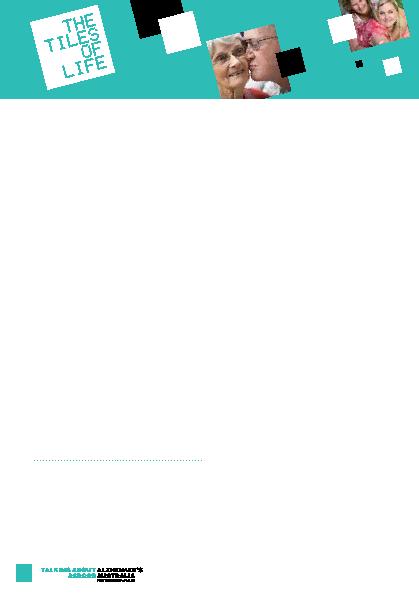
are underway to educate and engage the
broader community about dementia, and
also to provide social support and community
engagement for people living with dementia
and their family members. Projects have also
been developed which focus on improving
physical environments for people with
dementia. Internationally, numerous programs
have been implemented that aim to promote
social inclusion including with a specific focus
on creating dementia-friendly societies and
dementia-friendly organisations.
concept of dementia friendly societies,
including international and Australian examples.
discussion of:
· Lessons learned from other approaches to
organisations in Australia
Postdoctoral Research Fellow
Wicking Dementia Research and Education
Centre, University of Tasmania
Aged Care Nurse Practitioner, Department of
Health and Human Services, Tasmania, Older
Persons Mental Health
Dr Martin Morrissey
Old Age Psychiatrist, Department of Health
and Human Services, Tasmania, Older Persons
Mental Health
Carl Higgs
Research Assistant, Wicking Dementia
Research and Education Centre, University of
Tasmania
Dr Christine Stirling
Senior Lecturer, School of Nursing and
Midwifery, University of Tasmania
an open referral policy and nurse-led features
on client's ability to gain early cognitive
assessments in an Australian memory clinic.
diagnosis, multiple barriers mean the condition
is under diagnosed. Memory clinics have
demonstrated effectiveness at providing
diagnosis and care coordination. Memory
clinics are typically led by multidisciplinary
teams and require health professional referral.
Nurse-led clinics may provide an effective
and less resource intensive alternative, and
open referral policies may minimise barriers to
diagnosis.
profiles of clientele (n=57) attending a nurse-
led memory clinic over nine months were
collected and analysed, and differences
with published literature were qualitatively
compared. Approximately half of the clients
of this memory clinic received diagnoses of
mild cognitive impairment (MCI) or dementia.
Almost three quarters of clients were self-
referred to the NLMC, of which 35% (14 of 40)
were diagnosed with MCI or dementia. The